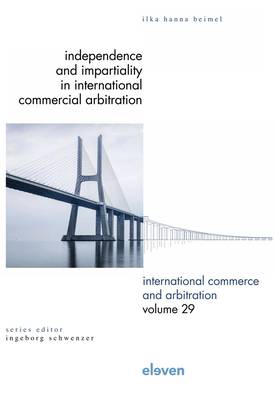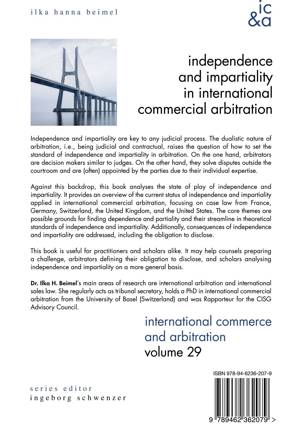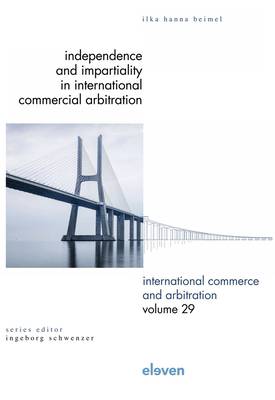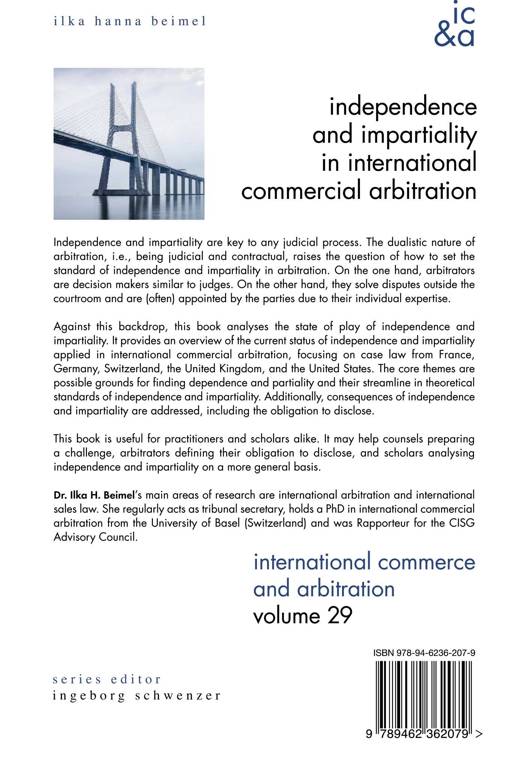
- Afhalen na 1 uur in een winkel met voorraad
- Gratis thuislevering in België vanaf € 30
- Ruim aanbod met 7 miljoen producten
- Afhalen na 1 uur in een winkel met voorraad
- Gratis thuislevering in België vanaf € 30
- Ruim aanbod met 7 miljoen producten
Zoeken


Independence and Impartiality in International Commercial Arbitration
An Analysis with Comparative References to English, French, German, Swiss, and United States Law Volume 29
Ilka Hanna Beimel
€ 130,95
+ 261 punten
Omschrijving
Independence and impartiality are key to any judicial process. The dualistic nature of arbitration, i.e., being judicial and contractual, raises the question of how to set the standard of independence and impartiality in arbitration. On the one hand, arbitrators are decision makers similar to judges. On the other hand, they solve disputes outside the courtroom and are (often) appointed by the parties due to their individual expertise.
Against this backdrop, this book analyses the state of play of independence and impartiality. It provides an overview of the current status of independence and impartiality applied in international commercial arbitration, focusing on case law from France, Germany, Switzerland, the United Kingdom, and the United States. The core themes are possible grounds for finding dependence and partiality and their streamline in theoretical standards of independence and impartiality. Additionally, consequences of independence and impartiality are addressed, including the obligation to disclose. This book is useful for practitioners and scholars alike. It may help counsels preparing a challenge, arbitrators defining their obligation to disclose, and scholars analysing independence and impartiality on a more general basis.Specificaties
Betrokkenen
- Auteur(s):
- Uitgeverij:
Inhoud
- Aantal bladzijden:
- 354
- Taal:
- Engels
- Reeks:
- Reeksnummer:
- nr. 29
Eigenschappen
- Productcode (EAN):
- 9789462362079
- Verschijningsdatum:
- 18/08/2021
- Uitvoering:
- Hardcover
- Formaat:
- Genaaid
- Afmetingen:
- 165 mm x 240 mm
- Gewicht:
- 716 g

Alleen bij Standaard Boekhandel
+ 261 punten op je klantenkaart van Standaard Boekhandel
Beoordelingen
We publiceren alleen reviews die voldoen aan de voorwaarden voor reviews. Bekijk onze voorwaarden voor reviews.












